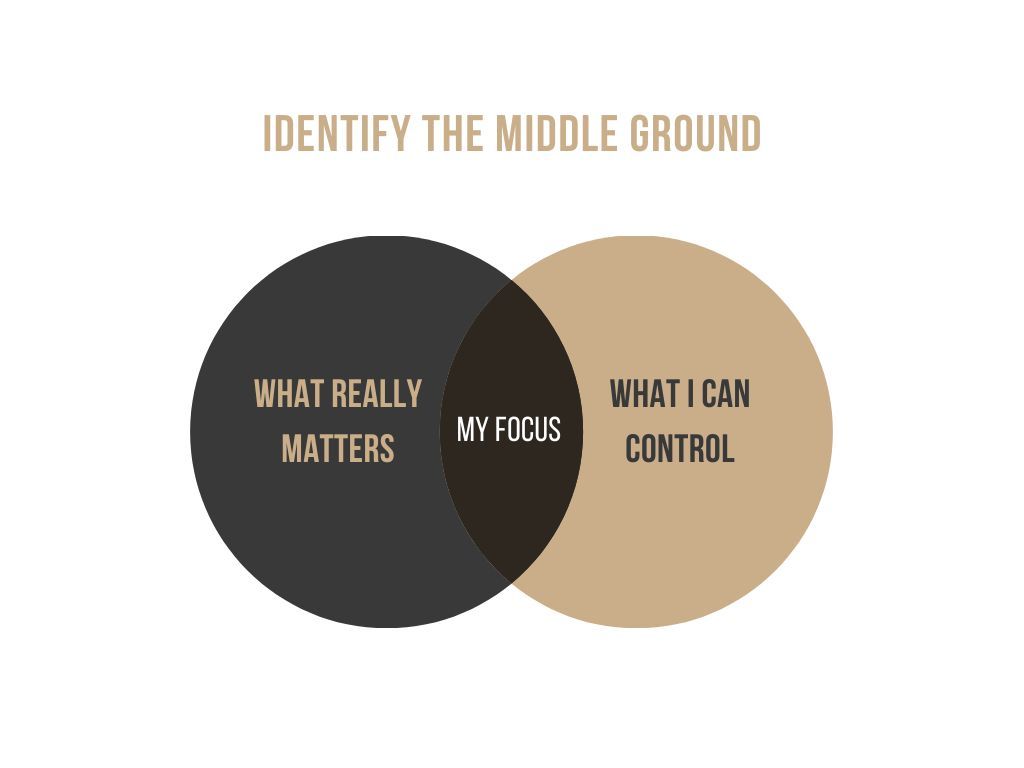You're wandering around your desertous mind. The entrance towards the land of worry shines upon. You begin to walk towards the entry, while you observe the rusty, carnival-like sign with purple neon lights that portray "Land Of The Worry!". After a couple of steps, a big door with a small mirror in the middle of its frame is visible now. Each step you take towards it, the better you can view yourself. Saddened, stressed, bitter, hurried. You are now at a 2-footstep distance from the door's handle. While you reach the shank of the rectangular handle, the mirror catches you giving yourself a quick glance full of indifference on the surface, but pain underneath it. Carelessly, you choose to pretend, that entering the 'Land Of The Worry', will somehow drop off all negative emotional loads from your shoulders.
When you come back from the 'Land Of The Worry', you will in fact, feel drained, anxious and impotent. I'd be lying if I said I don't enter this corner of my mind somewhat often, it's a natural reaction in situations that require high levels of critical thinking and independent decision-making. I could argue that many of the worries that cloud my mind come from sources that aren't in my control.
So, how can we note what is in our control vs what isn't in our control? A simple, yet complex question. Shall we go back in time to answer it? I do, to take the stoic's philosophy as my baseline. There is a concept within this school of thought, 'Dichotomy of Control' (DOC). This was brought up by Epictetus, a greek stoic philosopher. There are no records of his writings, however, there are records of his students' writings, whose origin stem from Epictetus' lectures in ancient Greece. Arrian of Nicomedia was one of those students, and he is the author of 'The Enchiridion', also known as the 'Manual of Epictetus', where he wrote down many of the lessons and advice learned in said lectures. In that book, we find Epictetus' definition of what is in fact in our control, and what isn't. Read the following:
"Some things are in our control and others not. Things in our control are opinion, pursuit, desire, aversion, and, in a word, whatever are our own actions. Things not in our control are body, property, reputation, command, and, in one word, whatever are not our actions."
What can we take from this definition? In other words, we control how we respond to a situation, what opinions to make, which battles we choose, what we pursue, etc. We do not control others' responses to situations, what opinions they make, which battles they choose, what they pursue. Identifiying this is crucial to limit our visits to the 'Land Of The Worry'.
Now, to draw the line between the antagonistic sides, create a diagram, it'll be easier to identify the middle ground when in doubt. View the following image:

After you define each side of the diagram, observe what ends in the middle. Focus on that. Now, in all honesty, identifiying "what really matters" can become ambiguous or overwhelming. There'll be situations where every element matters. However, you must remember that not all elements fall under your control. That is why identifying these 2 areas and their respective intersection is important.
Being in control of what you can really control, while it aligns with things that matter the most in a given situation, is the solution to many aspects of our worries, stresses, doubts and fears. But also, there is an extra aspect to it. Our trips to the "Land Of The Worry" might not only be because we are trying too hard to figure out a solution to every aspect of a situation. It is often the case that our fear of judgement also rules our dark clouds. It makes us question our own ability to take action, take important decisions, take steps on our own. Ultimately, if you let it, it will prevent you from being yourself. In the past, many of my trips to the worrying land of the worried began because of fear rooted in "What will 'x' individual think if I take 'x' decision?". If you relate, next time that ocurrs, sketch the previous diagram. Make conclusions. Think critically. And have pride in taking proper action.
More of these articles coming up soon!
Follow my instagram account: @ApplyTheseHabits
Don't forget to subscribe to the website for the weekly newletters!
For any inquiries, contact: aizpurua.flores@gmail.com

